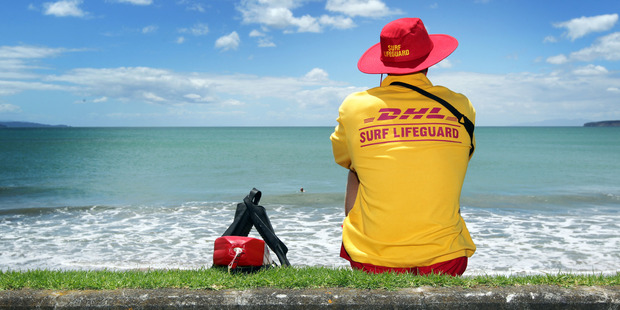
It's regularly voted one of the world's best, but Coromandel's Hot Water Beach is also New Zealand's most dangerous.
As Kiwis prepare to flock to beaches for what's predicted will be a record-breaking summer, statistics released by Surf Life Saving New Zealand (SLSNZ) reveal Hot Water Beach was the scene of the most surf rescues over 2015-16.
Annual figures show the Coromandel hotspot had 81 rescues last season, nine more than Whangamata (72) and 12 more than Auckland's notorious Piha (69).
In January a group of off-duty junior lifeguards - some as young as 14 - were praised for the dramatic rescue of three adults at Hot Water Beach. A fourth person, a middle-aged man, died after being pulled from the heavy swell and strong currents.
Lifeguard and chairman of Hot Water Beach Surf Club, Gary Hinds, said underprepared tourists account for many incidents.
"It's not the beach that's dangerous, it's the people we attract to the beach," he said.
"We get a lot of people who come in from overseas and have no understanding of water conditions."
Hinds, SLSNZ's Lifeguard of the Year in 2012, said the frequency of incidents "jumped" at Hot Water Beach about four years ago.
"We got about 13,000 preventative actions involving about 56,000 people as well last year. We might have done a lot of rescues, but we also did a lot of preventative action."
Lifeguards returned to many Auckland, Northern and Bay of Plenty beaches last weekend as Kiwis flocked to the coast to celebrate Labour Weekend.
And after a rise in drowning statistics over the past two summer seasons, the hero volunteers who keep swimmers safe want to get their message across early: "Stay between the flags."
"When we look back at all those coastal drownings in that [summer] period, they were all very preventable if people had just followed the message that we keep pushing out. The formula works," said Allan Mundy, education manager for SLSNZ.
"Surf Life Saving has been active in this country for 107 years and we have never, ever had a drowning between the flags. We can't make that message clear enough to everyone in New Zealand."
Last summer the number of people who died in the water over the Christmas-New Year period matched the previous year's grim toll of 10 - three more than the five-year average of seven over the Christmas-New Year holiday period.
Overall, the 2015 drowning toll hit 113 - numbers Water Safety New Zealand boss Matt Claridge described as "gut-wrenching". Pre-summer numbers have improved this year, though. At 58, the figures are down from 80 at the same time last year.
Mundy admits a number of beaches, particularly those on the West Coast, have become notorious.
But, he said, there's no such thing as danger hotspots - with statistics more a reflection of which beaches are busier.
"We do see places like Muriwai, Piha, Mount Maunganui, Hot Water Beach - they are considered dangerous but they're actually no more dangerous than other beaches," he said.
"It's the result of the sheer number of people who swim in them. Whenever you've got large numbers in a risk environment, some are going to fall into severe risk - and that's where we see the rescues."
Mundy said a particular problem the organisation is trying to tackle is a high number of drownings among young adults. "People in their 20s are highly representative in the statistics and it's essential they swim between the flags.
"We've a generation of New Zealanders who have learned to swim at school, which is great, but they're not necessarily water people - they're not swimming or surfing once a week.
"People need to ask themselves whether they are capable of swimming 200m without touching the floor. If not, they need to make sure - if they do decide to go into the water - that they're close to the lifeguards."







